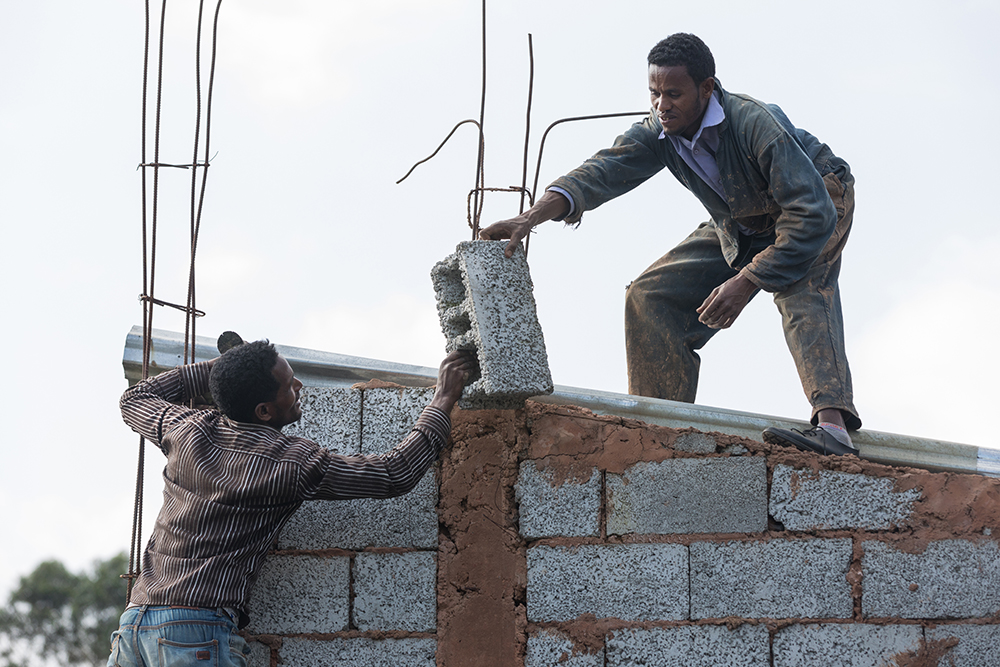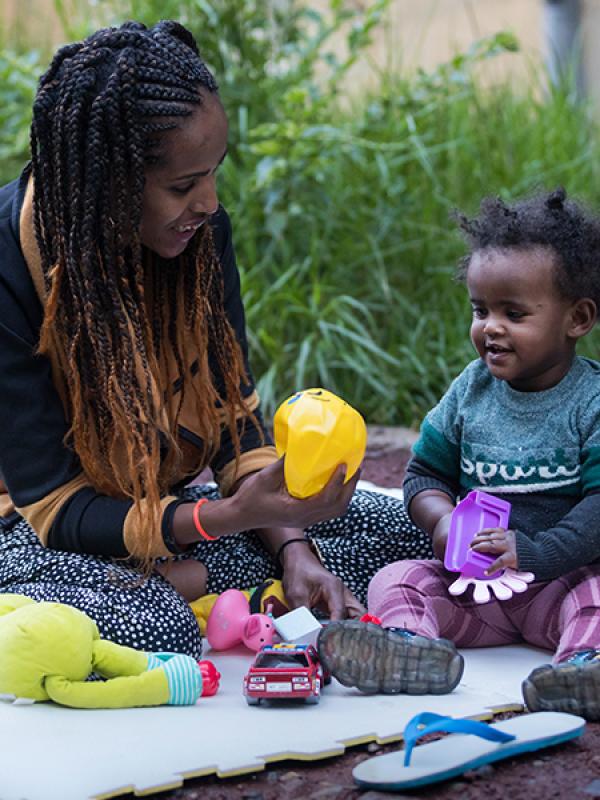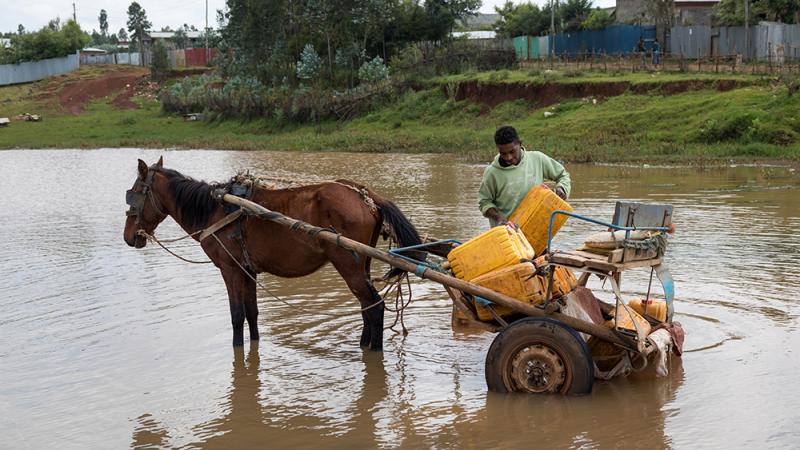Discover More
Breadcrumb
Young Lives At Work
Young Lives at Work (YLAW), was launched with new funding from UK's Foreign, Commonwealth & Development Office in 2019. The study continues to follow the original cohorts of children in Ethiopia, through adolescence into young adulthood using our quantitative survey method.
The project aims to investigate how education and skills shape young people's opportunities as they move into the labour market.
When Covid-19 hit, the research team adapted to a phone survey method to find out how the pandemic was impacting young people in our study sites. Between 2020 and 2021, the team conducted 5 call surveys publishing headline findings and policy recommendations after each call. Methodological and technical resources, as well as the research outputs, news and blogs, are available below.
With continuing support from the UK's Foreign, Commonwealth & Development Office, we are planning Round 7 of our quantitative survey, which will take our teams back into the field from September 2023.
Putting together a full Young Lives Survey Round is a complex and meticulous task. The team have been working on this for several months and will continue apace until the survey rolls out. There are a number of essential stages involved.
Tracking
Tracking is where we try and locate all the participants in our study across the 20 sites in Addis Ababa and the other four regions in Ethiopia - Amhara, Oromia, the Southern Nations, Nationalities and Peoples Region (SNNPR), and Tigray. For the first time, we contacted participants by phone, only visiting for a face-to-face tracking interview if contact had not been possible. This can now be completed in the Tigray region of Ethiopia as peace has been established.
Ethical Approval
Ethical approval for the data collection needs to be granted; this application has been submitted in March to the College of Health Sciences of Addis Ababa University.
Pre-pilot and SAQ
In advance of the data collection, we pre-pilot, or test, new aspects of the survey, including the main questionnaire, and a new self-administered questionnaire (SAQ), including an audio version, and potential new survey modules, notably on mental health and conflict issues.
The pre-pilot of the face-to-face questionnaire covered questions on basic socio-demographics as well as new modules covering risk, time and social preferences, stress, and what people value in their job. The SAQ contains questions on the experience of violence, tobacco, alcohol, drug consumption, sexual and reproductive health, attitudes towards abortion, and thoughts on safety on the internet and social media.
Pre-piloting was carried out during November and December 2022 by enumerators and fieldwork staff, trained in the various activities to be tested. Feedback has been assessed and will now be used to finalise the survey.
Revision of the “core modules” (i.e. survey modules included in previous survey rounds)
As well as feedback from the pre-pilot, the core modules will be finalised to reflect the current age of the participants and to take into account the unusual circumstances of the pandemic and the conflict since the last in-person data collection (Round 5).
For example, we plan to collect information on the effects of the COVID-19 pandemic and the conflict on both education and employment choices. We will also dedicate more time in the survey to questions related to work choices and skills. More time is also planned for questions to our Younger Cohort (approximately 22 years of age) on employment, family formation, marriage, parenting, and any children born since Round 5.
Self-administered questionnaire
The SAQ contains questions on sensitive topics notably relating to conflict and we plan to use an audio version for the first time in Ethiopia where low literacy might be an obstacle.
We will update this page over coming months with the final preparations for Round 7.

Transitions to Adulthood
Over the course of 2020, with funding from UNICEF Ethiopia and DFID Ethiopia, a team of Young Lives researchers collaborated in the analysis of newly generated qualitative data to answer the following questions.
- What different challenges do young men and young women face as they grow into adults?
- What supports their efforts to pursue the adult lives they choose and value?
- Which youth are most at risk of being left behind and how can they best be supported?
In 2019, researchers interviewed young men and women, aged 18 and 25, in ten rural and urban Young Lives communities to understand how gender, location, and poverty affected their diverging life paths. Five of these sites are part of Young Lives qualitative longitudinal research making it the fifth wave of data collection. We interviewed the same group about their lives five times since 2007. The 2020 grants supported the analysis of these data and UNICEF funded the 2019 data collection.
The analysis explored eight inter-related aspects of their journey into adulthood and was written up into research papers and policy briefs on these topics: school to work transitions; work and employment; educational pathways; experiences of divorce and separation among youth; migration and mobility; young parenting; fertility decision-making; and gender and youth resilience.




